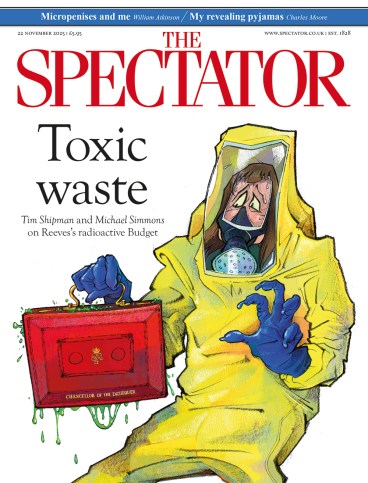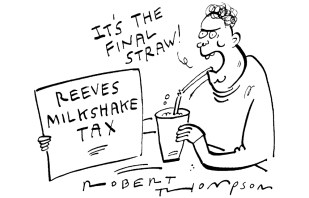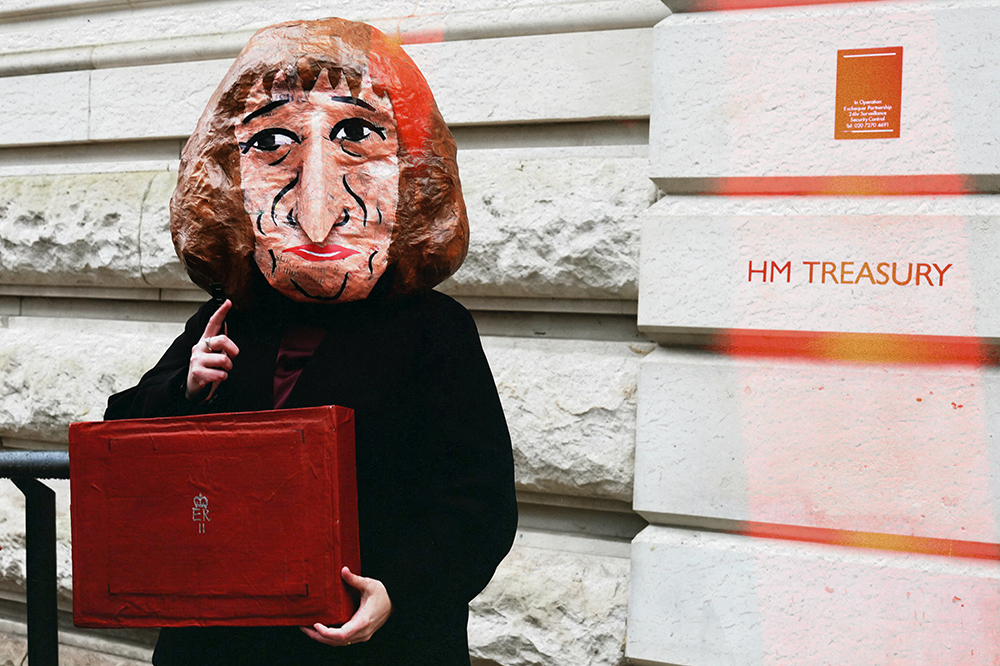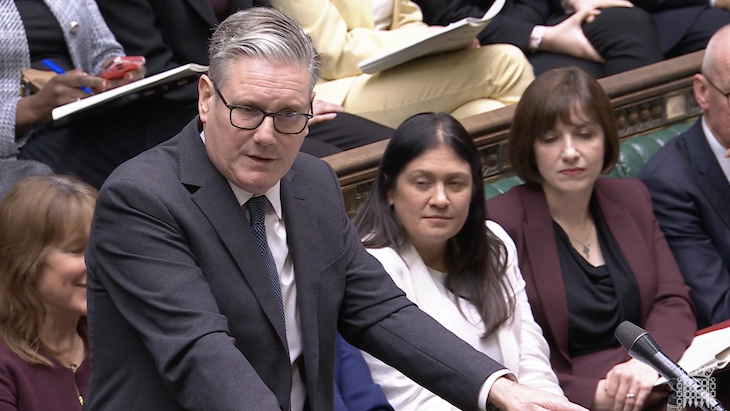
On Monday night, former England manager Gareth Southgate joined MPs and philanthropists for an event in Westminster described as ‘the Oscars of the charity world’. Cabinet ministers Lisa Nandy and Bridget Phillipson joined the Centre for Social Justice (CSJ) in handing out prizes to five charities that help those who fall through the cracks. Across the winners, a single theme stood out: the transformative power of a good job.
But Britain is running out of those jobs. Vacancies are falling, unemployment has risen to 5 per cent, while a deeper crisis sits beneath both: nine million working age people are economically inactive, including more than four million on out-of-work benefits with ‘no work requirement’. Nearly every EU country has rebuilt its workforce since Covid; Britain has not. If we had matched America, 371,000 more people would be in work; France, more than a million; Hungary, almost 2.5 million. The Centre for Economics and Business Research puts the cost of our drift into welfare at £40 billion by the end of this parliament. Had we avoided this, there would be no black hole at Wednesday’s Budget.
You might expect the party of the workers to care about this. Once, Labour did: a decade ago the then shadow work and pensions secretary, Rachel Reeves, bluntly told benefit claimants: ‘We are not the party of people on benefits… We’re not the party to represent those who are out of work.’ Today, she shows little of that pro-work zeal. The Timms Review into the Personal Independence Payment (PIP) system won’t report until next autumn and is explicitly forbidden from making savings. It will move no one into work, and the welfare bill will keep rising.
Then came the £25 billion raid on employers’ national insurance, which has wiped out more than 100,000 payrolled jobs. One investor told me: ‘Increasing employer NI immediately cost Labour the next term.’
These political and economic errors are made because the government has no vision. As one civil servant who worked on Reeves’s first Budget put it, the NI ‘mistake’ did not come about because Treasury officials don’t understand the law of unintended consequences – ministers never tell them which consequences to avoid. Put simply, you can have growth, business confidence and job creation, or you can have higher employment costs and an expanding smorgasbord of workplace rights. You cannot have both.
Meanwhile, buried in an underreported piece of legislation ping-ponging between the Commons and the Lords, is something far more damaging. The Employment Rights Bill threatens to turn today’s failures into permanent features of a hobbled economy. At 330 pages, it is, as one Whitehall wonk says, ‘economic vandalism’.
The Employment Rights Bill could allow one to start a job at 9 a.m. and claim unfair dismissal an hour later
Its most damaging proposal is ‘day one rights’, which could allow someone to start a job at 9 a.m. and file an unfair dismissal claim an hour later. The idea is so obviously harmful to employment that it is opposed by Tories, Lib Dems, Tony Blair, the left-wing Resolution Foundation (whose former CEO is writing the Budget), prominent Labour donors and most major business groups. And with the tribunal backlog already approaching 491,000 claims, years of crippling uncertainty for employers are inevitable.
There’s blatant gerrymandering in the bill too: switching union political subs from opt-in to opt-out, scrapping the requirement for 50 per cent of union members to take part in strike ballots and giving unions sweeping new workplace access rights, with fines for employers who fail to comply within five days. The government insists the bill’s strengthened anti-harassment rules won’t outlaw workplace ‘banter’, though it would hardly be the first time legislation was enforced more broadly than intended.
The economic consequences are not difficult to predict. Surveys by the Institute of Directors suggests 23 per cent of employers expect to lay off staff. Even the government’s own impact assessment admits costs to business of around £5 billion a year.

But the worst effects will fall on precisely the people celebrated at Monday’s awards, especially the young. Nearly a million 16- to 24-year-olds are not studying, training or working. Payrolled employment has fallen by 180,000 since Reeves’s first Budget. The CSJ warns of a ‘toxic cocktail’ of rising labour costs, welfare dysfunction and a broken migration system suffocating the jobs market.
The Tories are doing their best to thwart the bill. Shadow frontbenchers Mel Stride and Andrew Griffith last month wrote to the Office for Budget Responsibility (OBR) urging it to ‘score’ the bill’s effects in Wednesday’s Budget. Richard Hughes, the OBR’s chairman, wouldn’t commit to doing so – a small victory for Reeves.
Back in Westminster, while MPs wolfed down sliders and onion rings at the awards, their Tory and Lib Dem colleagues in the Lords voted to strip out all the bill’s most contentious clauses. It now bounces back to the Commons next month, where Labour insists that it will overrule the changes made in the Lords.
The cumulative effect of high taxes, anti-business legislation and our new welfare culture is visible far beyond Whitehall. Hiring is slowing, investment stalling and the labour market is seizing up. One City trader, asked about the state of the jobs market, described it as ‘a bit fucked, to be honest’. ‘We’re in a vicious cycle,’ he adds. ‘Prices rising, companies not hiring, the housing market stale and the tax burden climbing. I can’t see how the UK is encouraging entrepreneurship, innovation or investment in high-growth sectors.’
That is the zugzwang – the no-win position – chess-playing Reeves finds herself in. With an Employment Rights Bill threatening to become an unemployment act, and a benefits budget spiralling, Labour isn’t working. But the Tories let worklessness return during the pandemic. Reform’s most winnable seats are now the ones most dependent on welfare. No party offers a serious escape route.
If Britain keeps making work more expensive and welfare more comfortable, the labour market will keep shrinking. And without a functioning workforce, no government will have anything left to rule.









Comments